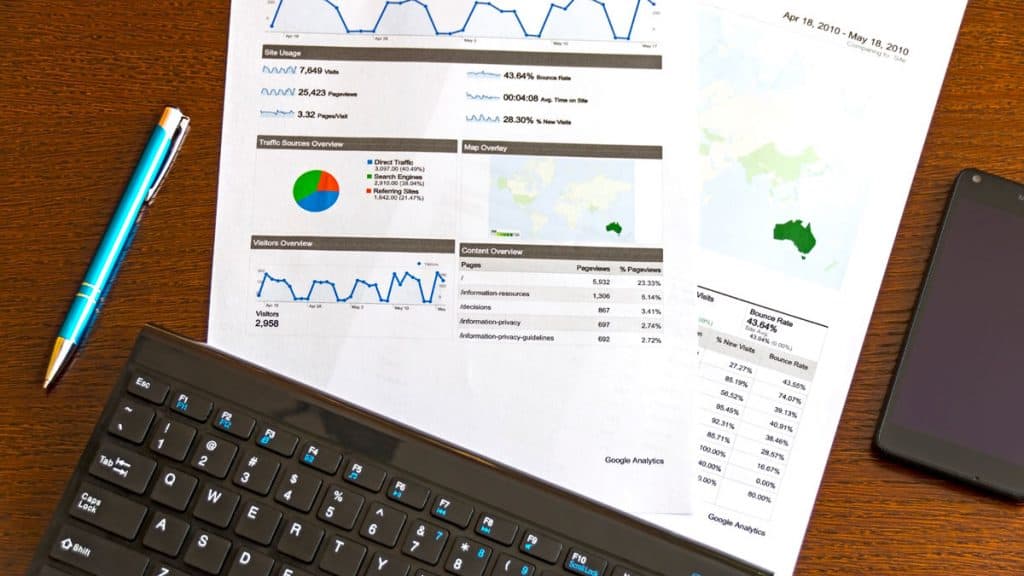How to Become a Data-Driven Business (And Why You Should)
Your business data is a valuable resource! And you don't have to be tech-savvy to take advantage of it. Learn how to become more data-driven and why it's important for your business' success.

Every business transaction we make can gives us a wealth of data. Once upon a time, we had no way to access or collect that information – there was no way to reasonably measure where customers came from, how they heard about you, or what their spending habits are. In today’s digital world, of course, we have access to all that and more. The business data we collect can tell us all about our customers (and about the people who aren’t buying) and we can use that information to improve our businesses.
What Is A Data-Driven Business?
In short, it’s a business that makes decisions based on the data it collects about its own internal workings, the market, target customers, and actual customers. It’s all about using actual numbers to make decisions rather than an educated guess or a “feel” for what’s going on with your business.
Almost any business today has the ability to be data-driven in at least some respects. Social media is a great source of information about who is reacting to your products and what sort of branding and marketing schemes are working for you. By storing and managing all of your financial information and marketing information electronically, you can see how your business fluctuates with the market and how your marketing efforts are shaping up.
If you’re selling products online, you can collect a huge amount of data about how many people visit your site, where your customers are, what they’re like, and what their buying habits are. Most of that business data is available through services like Google Analytics.
Brick and mortar stores can collect information about their customers by asking them to fill out surveys or connect with the business through social media. You can also find data online about the market and your target customers, or you can purchase specific data about your target customers from third parties.
What Can We Do With Business Data?
The whole point of gathering and analyzing business data is to make better decisions about how you run your business. Say you’re trying to target millennial customers – you can make an educated guess about what kinds of channels will reach them (tv, radio, social media, web advertising) and what sort of marketing content they’ll react to. Then you have to hope that it works. You can use data after the fact to see how close your hypothesis was to the truth, and that’s certainly helpful. But you can also save yourself a lot of time and effort by digging through your business data before you start a new marketing campaign so you have a clear idea of what’s most likely to be effective.
For your internal operations, it’s all about real-time decision-making. Say you’re tracking your inventory online, for example. By studying that data, you may find that a certain product sells like crazy during the summer but not at all during winter. Now you know that you can cut back on inventory during winter and save yourself some cash and wasted product. Or say you’re checking your budget and find that you’re consistently going over budget in a particular area – you can jump on it right away and figure out whether you’re dealing with a wasteful practice or you need to adjust the budget.
How Do I Make My Business Data-Driven?
If you use it right, your business data can give you a leg up on the competition, with insights into how to better run your business and how to better reach your customers. To get there, the first step is evaluating what data you have available and how you can use it. As we mentioned above, online businesses and business websites can give you a lot of data about who is finding your brand, how long they spend on your site, and what their shopping behaviors are.
You might find, for example, that people tend to put items in their cart but not actually make the purchase. That gives you an opportunity to adjust your tactics to get them to click “Buy.” Maybe it’s an issue of site design that makes completing a purchase complicated. Maybe you’ll benefit from sending reminders to people that items are waiting in their cart. But you can only do that if you have that data to begin with.
If there are aspects of your business that aren’t digitalized, consider switching over. There are a lot of software options for managing your finances, budget, inventory, and other regular business activities and all of those can give you terrific real-time data that you can use to make your business more efficient. You should also set up a business website, which will give you great information about who your marketing appeals to. And of course, set up your social media accounts and keep them active.
Planning for Profit: How to Create a Growth Plan for Your Business
Summary: Data Is Good Business
Current technology gives you the ability to know so much more about your customers than you could have done 50 years ago. And your competitors will be working to harness that power. So dig into your website, your social media, and your own internal data to boost your business!
At Accion Opportunity Fund (AOF), we help small businesses to improve, upskill and grow. Learn more about AOF, what we do and how we can help you become more data-driven.